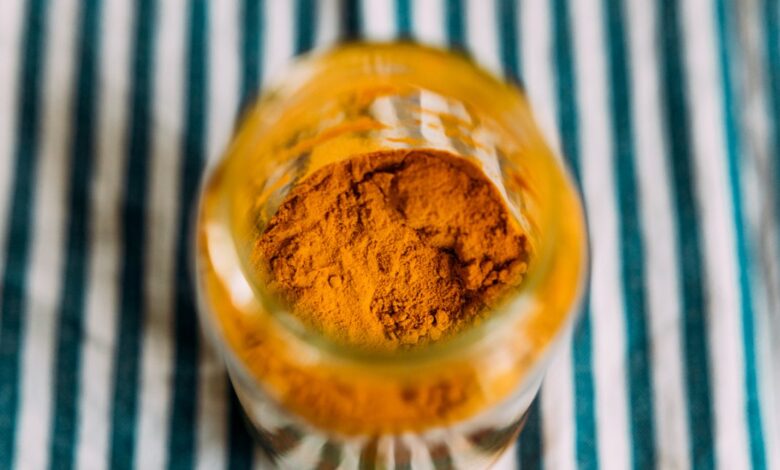Turmeric, the natural anti-inflammatory

turmeric is a rhizome derived from the plant curcuma longawhich has been used in traditional medicines such as Chinese or Ayurvedic for thousands of years with multiple benefits.
Turmeric and curcumin
It is especially recognized for its anti-inflammatory action thanks to curcumin, its most active component and which also acts as a powerful antioxidant.
Precisely, curcumin (polyphenolic pigment) is responsible for giving the dishes their orange-yellow color and gives them a intense flavor slightly spicy and bitter. You can find it in herbal shops or organic stores and supermarkets in rhizome or powder. It is a highly appreciated species in oriental cuisine, especially in Indian vegetarian cuisine, and it is also one of the basic ingredients that make up the curry.
Main benefits
- In the last 20 years, many scientific studies have been carried out to deepen our knowledge of this species.
natural anti-inflammatory
- Very useful to combat joint pain and arthritis. Athletes help them recover before injuries. Its effectiveness is compared to anti-inflammatory drugs, but without its side effects.
- Its action also helps improve pathologies that occur with inflammation such as Crohn’s or ulcerative colitis.
Relieves digestive and liver problems
- By favoring the functioning of the liver and the discharge of bile, fats are better digested and heavy digestion and diarrhea are improved.
Improves mood
- It helps reduce stress and modulate depression because it reduces neuronal inflammation.
Help in neurodegenerative diseases
- By reducing chronic inflammation of the central nervous system. It has been especially studied in Alzheimer’s patients.
Help in the treatment of cancer
- By reducing the creation of new vessels in tumors, as well as their dissemination (metastasis), and favors cell apoptosis.
- Antiviral, antibacterial, antifungal and blood glucose regulating properties are also attributed to it.
Its effectiveness is equated to anti-inflammatory drugs, but without its side effects
How to improve the absorption of turmeric
- One of the big drawbacks of turmeric is that its bioavailability is low. That is, it is not easy to be absorbed and pass into the blood.
- A very simple way to improve its absorption it is adding a little black pepper ground, thanks to the action of piperine. also interesting combine it with some fat because it dissolves well in it and stimulates the secretion of bile.
- Dressing some vegetables with extra virgin olive oil, a teaspoon of turmeric and a little black pepper is a good strategy to benefit from the medicinal components of turmeric.
- Another aspect to take into account is that we eliminate it quickly because it is metabolized at high speed in the liver and intestines.
- We can play with an advantage by delaying its degradation and circulating in the blood for longer if there are any of these foods in the same meal: garlic, onion, sesame, grapes or apple (with skin). An infusion of passionflower with honey also stops its elimination.
supplements
- If we have any pathology that requires high daily doses of turmeric, it would be interesting to take a turmeric supplement under the supervision of a therapist.
- The most bioavailable are those that are presented in the form of phytosomal turmeric or that, in addition to curcumin, include curcuminoids and the essential oils of the rhizome.
- It is contraindicated if anticoagulants or antiplatelets are taken. It is also not recommended in case of pregnancy.
